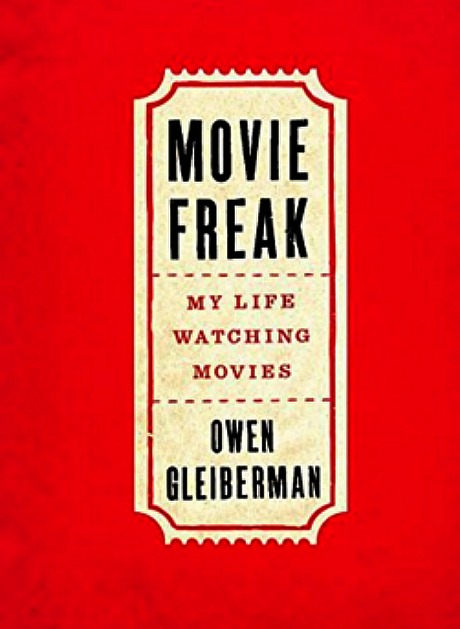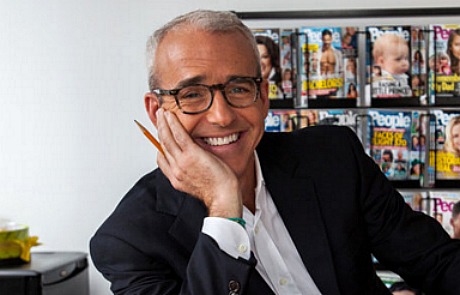A copy of Owen Gleiberman‘s “Movie Freak: My Life Watching Movies” (Hachette, 2.23) arrived today. I’ve known Gleiberman, one of the most eloquent and engaging critics on the planet, since my early-to-mid-’90s freelancing period with Entertainment Weekly. Gleiberman was a senior critic at that once-dynamic publication from the launch in 1990 until April 2014, when he was cut loose. OG’s smooth prose and perceptive views didn’t appeal to the lightweight giggly girls who had gradually become EW‘s reader base.

I went right to the second-to-last chapter, “The Book of Eli”, to read about Gleiberman’s last days there.
The chilly axe-man was Jess Cagle, who had been named EW and People‘s editorial director in January 2014. Cagle “was someone I’d always liked a great deal,” Gleiberman writes. “I had respect for Jess’ editing chops and enjoyed his airy corporate version of shade-throwing wit, and I felt that he might be the perfect person to recharge EW‘s pleasure centers. I told a lot of my colleagues, ‘He’s exactly what we need.’
“Be careful what you think you’re glad for.
“Let’s be clear about something: In his first two years at the helm, Jess Cagle saved Entertainment Weekly. Her whisked it back from the dead and made it crackle again. At the same time he didn’t like ‘negative’ stories. And there was a trio of movie stars — Tom Cruise, Julia Roberts, Will Ferrell — whom Cagle appeared to have placed on a special perch where little seen as hurtful to their careers could be published in EW or on ew.com.
“My fear was that Jess, in his new mode of pathologically ‘friendly’ let’s-boost-the-product advocacy, had altered his view of critics. The Jess Cagle I knew back in the ’90s believed in what we did. He had once complimented me on a review I wrote about the stage revival of Wait Until Dark that featured Quentin Tarantino. I remember Jess saying about the piece, ‘That was good EW!’ I felt like Jess was saying ‘This is what we do…we tell it like it is.’
“But that Jess was gone. The Jess who had taken his place didn’t seem to want criticism that challenged or provoked or dissed what was popular; what he wanted was a weekly celebration of product. If a lead review was negative, he would’t say ‘Why don’t we like this movie?’ but he might say, ‘Why are we giving so much space to something we don’t like?’
In the fall of ’13 Gleiberman won his first journalism award — an Editorial & Design Award for Best On-Line Column.
“Three hours later I was back in the EW office,” he writes, “and walking down the hallway, and who should be coming the other way but Jess. He gave me a terse ‘Hello, Owen”…and that was all. No congratulations, no acknowledgement that I had just won an award for EW…nothing. I wasn’t hurt or insulted because I felt it wasn’t a snub. It was something far more grave — a sign that my days were numbered.”
Gleiberman is currently chief film critic for BBC.com.

Owen Gleiberman

Jess Cagle









